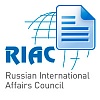Publications Review 03.04.2014. War waging, Defense cooperation, Cybersecurity and Cooperation in the Arctic
In
Login if you are already registered
(no votes) |
(0 votes) |
Let’s distract ourselves from ongoing negotiations around Ukraine and go through political theory and war waging, future of state sovereignty and defense cooperation, digital world of cyber security and how to use the appropriate terms when speaking about cyber threats, then jumping to Russian-Western relations in the Arctic, which is an integral part of finding an efficient way to move on with the climate change talks.
This edition of our digest shall start with a thoughtful piece by Andreas Herberg-Rothe on How to win a lost war. The author brings up the phenomenon of a narrative in times of war. He gives the examples of the WWI and WWII, stating that narrative can be a very powerful societal and historical tool. From Nazi Germany to Afghanistan under the rule of Talibal, this piece may seem to dwell upon a theoretical and well-known topic but author’s angle and attitude will not leave you bored and sore-minded upon reading.
 Sovereignty has grown to be a debatable issue between representatives of conservative thought and those who advocate the globalization and state borders transparency. This is no coincidence that the above featured piece on war brings us to the future of state sovereignty. How can sovereignty encourage or hinder a deeper engagement in defense cooperation? No better place to look for plausible explanations and answers than supranational Europe. Clingendael in the Netherlands provides us with a report Sovereignty and Defense cooperation.
Sovereignty has grown to be a debatable issue between representatives of conservative thought and those who advocate the globalization and state borders transparency. This is no coincidence that the above featured piece on war brings us to the future of state sovereignty. How can sovereignty encourage or hinder a deeper engagement in defense cooperation? No better place to look for plausible explanations and answers than supranational Europe. Clingendael in the Netherlands provides us with a report Sovereignty and Defense cooperation.
 Not done yet? Another publication, this time a long one, on Critical terminology foundation 2nd edition, which is a Russia-US bilateral policy report on cyber security, featured by EastWest Institute. This is a very useful handbook, basically a thesaurus on the vital cyber terms. A team of Russian and American experts has worked through 20 new terms and they won’t stop there. Chinese and French languages are next in line.
Not done yet? Another publication, this time a long one, on Critical terminology foundation 2nd edition, which is a Russia-US bilateral policy report on cyber security, featured by EastWest Institute. This is a very useful handbook, basically a thesaurus on the vital cyber terms. A team of Russian and American experts has worked through 20 new terms and they won’t stop there. Chinese and French languages are next in line.
Digest Editor: Maria Gurova.
(no votes) |
(0 votes) |








